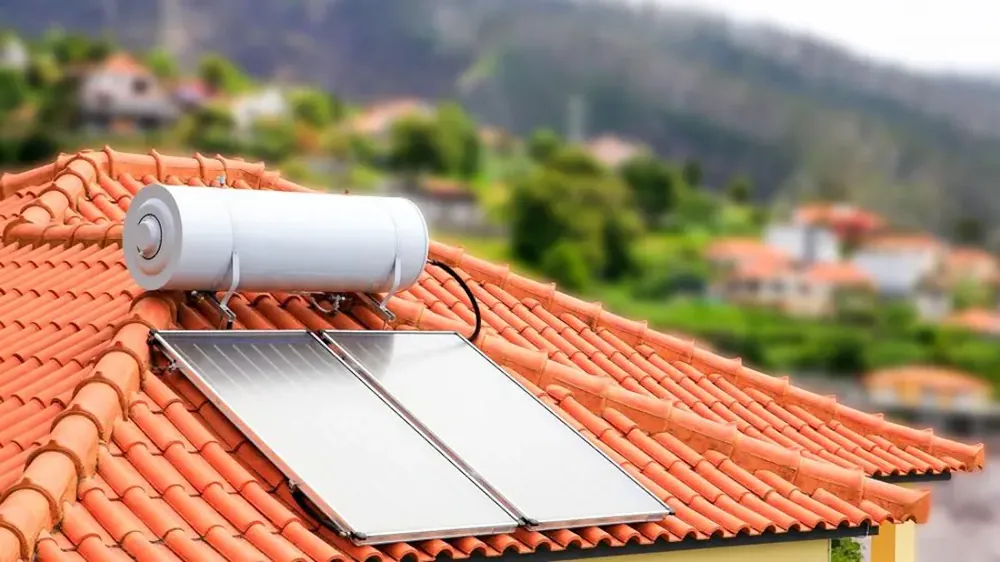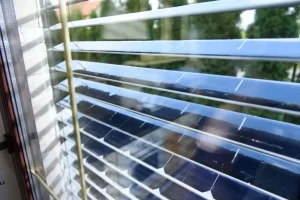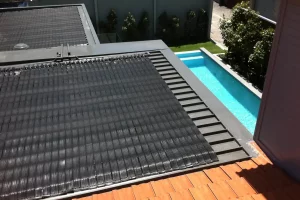Using solar energy to heat water is a practical and eco-friendly solution that aligns with the growing emphasis on renewable energy sources. This method is not only beneficial for reducing energy costs but also contributes to a sustainable environment. In this article, we will explore the benefits of solar water heating, various methods available, the operational mechanics, and the scenarios where it is advantageous or less suitable. Additionally, we will look at other off-grid water heating alternatives for residential needs.

Why Solar Water Heating is Beneficial
Solar water heating offers a multitude of advantages that extend beyond simple energy savings:
- Cost Savings. One of the primary benefits of solar water heating is the reduction in utility bills. Once installed, solar water heaters use the sun’s energy, which is free, significantly reducing the reliance on electricity or gas.
- Environmental Impact. Solar water heaters contribute to reducing carbon footprints by lowering greenhouse gas emissions. They harness a renewable resource, thereby decreasing dependence on fossil fuels.
- Energy Independence. Utilizing solar energy for water heating reduces dependence on the grid, providing a reliable source of hot water even during power outages.
- Incentives and Rebates. Many governments and local authorities offer incentives, tax rebates, and subsidies to encourage the installation of solar water heaters, making the initial investment more affordable.
Methods of Heating Water with Solar Energy
There are several innovative methods for harnessing solar energy to heat water, each tailored to different climatic conditions and household needs. These methods can be broadly categorized into active and passive systems, offering diverse solutions for maximizing the efficiency and effectiveness of solar water heating.
Active Solar Water Heating Systems
- Direct Circulation Systems: These systems pump household water through collectors and into the home. They work efficiently in climates where temperatures rarely drop below freezing.
- Indirect Circulation Systems: These systems pump a non-freezing, heat-transfer fluid through collectors and a heat exchanger. This warms the water that then flows into the home. These systems are suitable for climates prone to freezing temperatures.
Passive Solar Water Heating Systems
- Integral Collector-Storage Passive Systems: These systems are best suited for areas where temperatures rarely fall below freezing. They consist of a storage tank and solar collector integrated into one unit, and the sun directly heats the water.
- Thermosyphon Systems: These rely on the natural circulation of water between a collector and a storage tank. Hot water rises as it warms and flows into the storage tank, while cooler water sinks, creating a cycle.
How Solar Water Heating Works
Solar water heating systems typically include the following components:
- Solar Collectors: These are the primary component and come in two main types: flat-plate collectors and evacuated tube collectors. Both types capture solar energy and transfer it to the water or heat-transfer fluid.
- Storage Tanks: These tanks store the heated water. In two-tank systems, solar heaters preheat water before it enters a conventional water heater. In one-tank systems, the backup heater is combined with the solar storage in one tank.
- Heat Exchangers: Indirect systems use heat exchangers to transfer heat from the fluid in the solar collector to the water in the storage tank.
- Controllers and Pumps: Active systems use controllers and pumps to circulate water or the heat-transfer fluid through the collectors.
Solar Water Heating Operation
During daylight hours, solar collectors capture and convert sunlight into heat. This heat is transferred to the water or a heat-transfer fluid. The heated water is then stored in a tank for use when needed. In climates with freezing temperatures, indirect systems with non-freezing fluids prevent the system from freezing.
When Solar Water Heating is Beneficial
- Sunny Climates: Regions with abundant sunlight year-round maximize the efficiency and output of solar water heating systems.
- Environmental Goals: For households aiming to reduce their carbon footprint, solar water heating is a substantial step towards sustainability.
- Long-Term Savings: Despite the higher initial cost, the long-term savings on energy bills can be significant, making solar water heating a wise investment.
- Government Incentives: Availability of rebates, subsidies, or tax credits can offset the installation costs, enhancing the financial feasibility.
When Solar Water Heating is Not Beneficial
- Cloudy or Cold Climates. In regions with limited sunlight or harsh winters, the efficiency of solar water heaters can diminish, necessitating a reliable backup system.
- High Initial Cost. The upfront investment can be a deterrent for some households, especially without access to financial incentives.
- Space Constraints. Solar collectors require adequate roof space with proper orientation towards the sun. Homes lacking suitable space may find installation challenging.
Other Off-Grid Water Heating Methods
In addition to solar water heating, there are various off-grid methods available for heating water that cater to different needs and resources. These alternatives provide flexibility and reliability for households seeking independent and sustainable water heating solutions in remote or off-grid locations.
- Wood-Burning Water Heaters. These heaters use wood as a fuel source to heat water. They are beneficial in forested areas with abundant wood supply but require regular maintenance and wood storage.
- Propane Water Heaters. Propane heaters are a popular off-grid solution, offering efficient and quick water heating. They are portable and suitable for areas with an available propane supply.
- Heat Pump Water Heaters. These devices use electricity to move heat from the air or ground to heat water. They are more efficient than traditional electric water heaters but rely on electricity, which may be generated off-grid via solar panels or wind turbines.
- Solar Showers and Camping Heaters. Simple and portable, these solutions are ideal for outdoor or emergency use. They consist of a black plastic bag that heats water using solar energy, providing a temporary and straightforward solution.
Conclusion
Solar water heating is a viable and beneficial option for many households, especially those in sunny climates or with environmental sustainability goals. It offers long-term cost savings, reduces carbon footprints, and can increase energy independence. However, it may not be suitable for regions with limited sunlight or for households with budget constraints and space limitations.
Alternative off-grid water heating methods, such as wood-burning, propane, and heat pump water heaters, provide additional flexibility, especially in remote or off-grid locations. Each method has its own set of advantages and limitations, making it important to assess the specific needs and conditions of the household.
Ultimately, solar water heating is most useful when there is ample sunlight, financial incentives to offset initial costs, and a desire to reduce environmental impact. Careful consideration of local climate, financial factors, and available space will help determine the most appropriate water heating solution for each unique situation.



